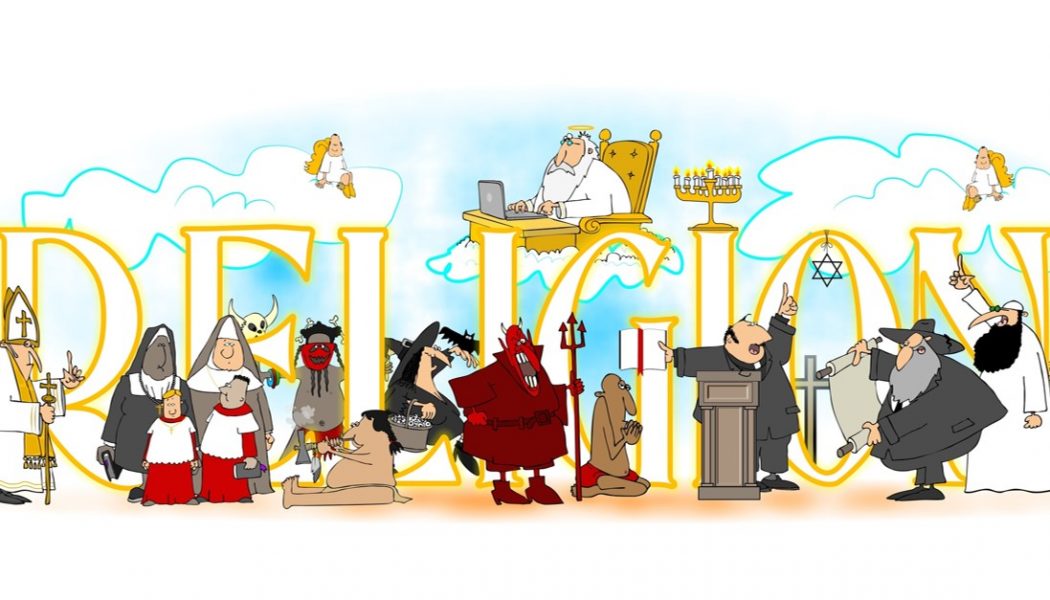Atheism is not a belief system† so that should end this article right here, but theists will likely not be satisfied. They might point to the things atheists and religions have in common: religions form churches, atheists form associations; churches and atheist associations appoint members to formal roles such as bishop and president; church members give offerings, atheists pay subscriptions; churches hold services, atheist hold meetings. Churches and atheists both have literature they value and people they admire.
The problem is, these are superficial similarities and if they make atheism a religion, they make political parties and table tennis clubs religions too. That is obviously absurd.
There is one organization that makes it their job to decide which group is a religion and which is not, and that’s The Internal Revenue Service (IRS) in the USA. Religions receive highly favorable treatment in the USA and the IRS wants to avoid giving these advantages to organizations that are not genuine religions. So the IRS has a set of criteria they apply to any group claiming to be a religion. The primary criteria are listed below with how atheist groups qualify [shown in parenthesis].
- Distinct legal existence [Some atheist groups are legal entities.]
- Recognized creed and form of worship [No creed or forms of worship.]
- Definite and distinct ecclesiastical government [No ecclesiastical governance.]
- Formal code of doctrine and discipline [No doctrine.]
- Distinct religious history [No religious history.]
- Membership not associated with any other church or denomination [Atheists may join any number of atheist groups.]
- Organization of ordained ministers [No ministers of any kind.]
- Ordained ministers selected after completing prescribed courses of study [No courses of study.]
- Literature of its own [No literature reserved for one group.]
- Established places of worship [No worship.]
- Regular religious services [No religious services.]
- Sunday schools for the religious instruction of the young [No instructing the young.]
- Schools for the preparation of its members [No atheist schools.]
With only one criterion applicable to atheists (and that one all political parties and many clubs share), the IRS won’t be granting religious tax exemptions to atheist groups any time soon.
Theists might follow-up by asking why atheists bother to meet to talk about gods they do not believe in. There are several reasons atheists meet but none of them are to talk about gods they don’t believe in. A common reason, especially in very religious countries, is to find some time to socialize with like-minded people who are not preoccupied with religious beliefs.
In many cases, atheists meet as a reaction against religious intolerance, the infiltration of religious dogma into schools and legislation, or the entanglement of church and state. They meet to get organized in an attempt to combat these religious excesses.
Let’s spell this out, atheists have no beliefs in common, no gods of any kind, nothing they worship, no scripture, no shared values, and no dogma. They have no clergy, no schools, and no sacred buildings. The only thing all atheists share is a lack of belief in gods.
Why then do the religious so often claim atheism is a religion? We don’t know, you’ll have to ask religious people that question. Perhaps it is an attempt to drag atheism down to the level of a religion—a set of unsubstantiated beliefs, in a landscape where beliefs are held only on faith. If so, they would be completely wrong about that too.
† If you think atheism is the belief that there are no gods, you should read the article What is atheism?
PREVIOUS: What is atheism? NEXT: Can atheists be moral?
Looking for books on atheism, critical thinking, evolution or ethics?

